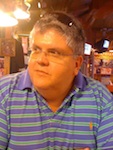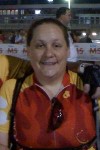I think that I am probably misdiagnosed with sleep apnea at this point. It is not possible that everytime I reduce my pressure, my body adapts and throw better numbers than higher pressure.
Even when I have been fully compliant and good cpap numbers, but hypo not under control, I felt sleepy, depress, etc.Both sleep apnea-hypopnea syndrome (obstructive sleep apnea [OSA]) and hypothyroidism are common problems in internal medicine. Each disorder probably occurs in at least 2% (1) of the North American population. Unfortunately, OSA and hypothyroidism can easily be confused. Obesity, fatigue, decreased libido, depressed mood, and impaired concentration are symptoms common to both disorders. Even snoring, which is a prominent presenting complaint with OSA, has been observed universally within at least one group of hypothyroid patients(4). Periorbital and peripheral edema are usually associated with hypothyroidism, but are also frequently seen in OSA (5). Because the two disorders have been estimated to occur together in 1.6 to 11% of sleep clinic patients (6, 7), the sleep-respiratory clinic environment can be an opportunity for misdiagnosis.
I really encourage everyone to read this article and see if you are one of them. I think I was misdiagnosed with OSA.This differentiation is not moot. Although an unlikely event in a sleep clinic, misdiagnosing OSA as hypothyroidism could result in inappropriate thyroxine therapy, which has not been shown to be effective treatment for primary OSA. However, the probability of mistakenly declaring OSA when the correct diagnosis is hypothyroidism, is much greater in the sleep clinic, and the consequences could be serious. Inappropriate treatment for OSA, including prescription of continuous positive airway pressure (CPAP), could relieve snoring and might normalize the polysomnogram, as a short-term "success." Meanwhile, the patient's presenting symptoms would persist, while a false diagnosis of OSA would delay or impede proper diagnosis and treatment of hypothyroidism. Supersensitive serum thyroid stimulating hormone (TSH) testing could be used to diagnose hypothyroidism among sleep clinic patients. However, the feasibility and economic justification of this biochemical screening has not been established (7).
FULL ARTICLE.
http://ajrccm.atsjournals.org/cgi/conte ... /160/2/732












